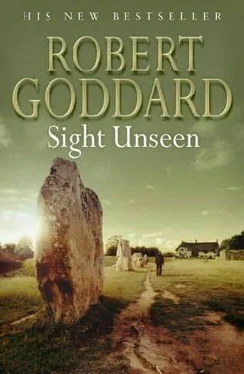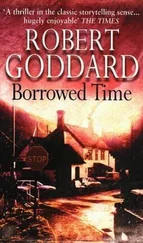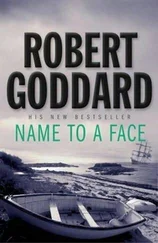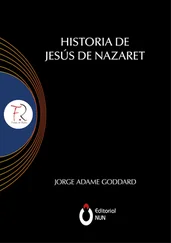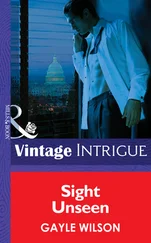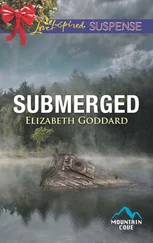Umber left the cafe and headed towards Kew Green. A map of 1800 reproduced in The Story of Kew showed the whole area east of the Gardens as fields. There were only two small areas of housing: one centred on the Green, at the northern end of the Gardens, the other lining the opposite bank of the Thames either side of Kew Bridge. Logically, Christabella's friend had to have lived in one of these locations.
* * *
It could not have been the Green. Umber sensed rather than deduced this as he prowled across it, scanning the elegant Palladian frontages of the surrounding houses. In 1791, they would have been the residences of princes and princesses – George Ill's aunts, uncles, brothers and sisters – plus assorted hangers-on. Surely Christabella's friend could not have dwelt literally amongst them. To fit Umber's hazy image of him, he needed to be at one remove – an observer from a safe distance.
* * *
Umber crossed Kew Bridge and turned right along Strand-on-the-Green, a riverside path running east round a curve of the Thames past well-kept fishermen's cottages and gentlemen's villas clearly dating from the eighteenth century. This, he reckoned, was more like it. Humbler than Kew Green, but still smart enough, and within easy reach.
But it was only a hunch, of course. He was in no position to back it up. He would have to probe the history of every house if he was to mount a serious search for Christabella's friend. Even then he might fail to find him. It was academic in any case. There was simply not enough-
Umber came to a sudden halt on the path and stared at the building in front of him. It was a small yellow-brick cottage squeezed between two grander residences. The front door was undersized, accessed by a short flight of steps. It looked as if the entrance had been modified as a precaution against flooding, which Strand-on-the-Green was presumably prone to. Above and to one side of the door was a stone-carved likeness of a mythical beast, acting as a lampholder. The creature had the wings and head of an eagle, set on the body of a lion. It was a griffin.
* * *
Umber pressed the bell, staring into the stone eye of the griffin as he did so. He had no idea what to expect if and when the door opened. He had no expectations of any kind. He could only let chance and circumstance take their course.
* * *
'Good afternoon.'
The door had been opened by a tall, lean, weather-beaten man of sixty or so with wavy grey hair and a ruggedly handsome face. The chinos and guernsey he was wearing gave him a maritime air, suggesting his stooped posture had been acquired from long acquaintance with cramped ships' cabins, his squinting gaze from the scanning of many horizons.
'Can I help you?'
'I…' Umber did not know what to say, or at any rate how to begin to say it. 'I'm looking for… a Mr Griffin.'
The man smiled. 'Well, you've found him.'
Umber's use of the indefinite article proved prescient. He had found a Mr Griffin, not the Mr Griffin. But nonetheless he had found more than he could ever have hoped. The irony was that back in 1981 he would have approached the problem more systematically. He would never have ambled through Kew expecting the answer to leap out at him. And consequently he might never have found his way to the cottage with the griffin lampholder.
He sat in the small bachelor-spruce drawing room and explained himself as best he could. He had got no further than the bizarre truth that he had come in search of someone he had been due to meet twenty-three years previously, when his host, who had introduced himself as Philip Griffin, interrupted.
'Sounds as if you're talking about my brother Henry, Mr Umber. Before we go any further, I ought to tell you that 1981 was the last year anyone ever saw or heard of him. I was out of the country at the time. I didn't find out Henry had gone missing till I got back here thirteen years later. So, when and where did you have this appointment with him? And what was it about?'
'Avebury. Twenty-seventh of July, 1981.'
'Avebury? 1981?' Griffin's brow furrowed. 'Haven't I read something recently about a murder at Avebury in 1981?' He snapped his fingers. 'That's right. The bloke they got for it was murdered in prison a couple of weeks ago. And somebody connected to the case committed -'
'Suicide. I know. You could say that's what brought me here.'
'I don't understand. What's Henry got to do with all this?'
Umber answered the question as fully as he could allow himself to. He summarized the events of 27 July 1981 accurately enough and emphasized that his theory about what had happened to Henry Griffin was just that: a theory. He said nothing about Chantelle, however. He did not even suggest he subscribed to Sally's belief in Tamsin's survival. Not that Tamsin – or Sally – much interested Philip Griffin. His attention was focused on the fate of his long-missing brother.
'I'm sorry to be the bearer of bad news, Mr Griffin. I suppose you must have hoped he was still alive somewhere. And that is possible, of course. I -'
'It's OK. I wrote Henry off a long time ago. He and I didn't really see eye to eye. That was one of the reasons I left Father and him to it after Mother died and took myself off round the world. I lost touch with them completely. And I didn't come back for nearly twenty years. When I did, I found Father going gaga with this house collapsing around his ears – and no trace of Henry. They'd fallen out long since, according to the old man, though he was too far gone to remember why – or so he pretended. Henry had left on account of their disagreement, whatever it was about, and good riddance was the gist of his ramblings. Not a warm-hearted man, my father. He's dead and gone himself now. The neighbours said it was the summer of 'eighty-one when Henry vanished from the radar. So, it sounds as if your theory fits the facts, doesn't it?'
'Yes. I suppose it does.'
'And it also sounds as if Henry died trying to be a good citizen, which is some consolation. But there's one thing you still haven't mentioned, Mr Umber. The reason for your appointment with Henry.'
'Ah. Well, I was at Oxford in 1981, studying for a Ph.D. Your brother phoned me out of the blue, saying he had a book – technically, a pair of books – relevant to the subject of my thesis which he was sure would interest me. We agreed to meet at the pub in Avebury – the Red Lion – that Monday, the twenty-seventh of July, so that I could take a look at them.'
'What books were these?'
'A special edition of the letters of Junius.'
'Junius?' Griffin's expression suggested surprise rather than incomprehension. 'Well, well, well.'
'You've heard of him?'
'Oh yes. Growing up in this house, you could hardly fail to, even if you were a duffer at history. Which I was. Unlike Henry.'
'Is there some connection, then, between your family… and Junius?'
'You could say so. The Griffin family legend, we'd better call it. Junius… and our claim to the throne.'
'What?'
'Laughable, isn't it? But Henry believed it. So did Father. And his father before him.'
'Your… claim to the throne ?'
Griffin smiled ruefully. 'Don't worry. I'm not about to serve a writ on the Queen and demand the keys to Buckingham Palace. But it's entertaining stuff in its way. Want me to fill you in on it?'
'Yes, please.'
'Well, before I do, let's get back to these books. How special were they?'
'Very. A uniquely bound copy of the letters printed for Junius's own use.'
'I see.'
'Which means -'
'No need to spell it out, Mr Umber. I know what it means and it ties in with something Father said a couple of times, now I think back. He called Henry a thief. But he never said what he was supposed to have stolen. I think I understand now. Father must have kept the books hidden away. And Henry must have found them.' Griffin rose to his feet. 'Wait here, would you? There's something I want to show you. But it might take me a few minutes to lay my hands on it.'
Читать дальше
